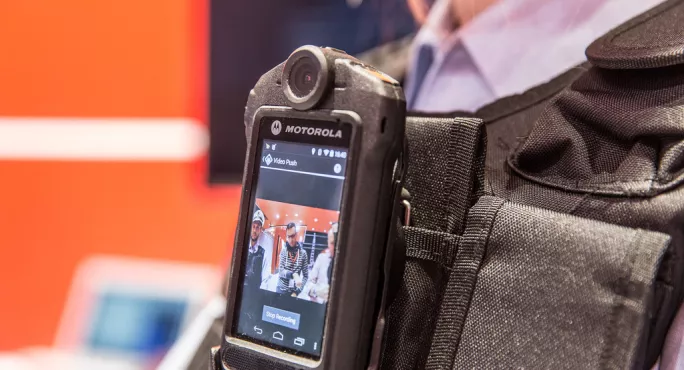Apparently, according to a recent TES survey, two-thirds of respondents would feel safe with a camera constantly filming in the class room.
Indeed, it seems that two schools in the UK have already opted to introduce body cameras for their staff.
Pardon the intemperate language, but you #$%^!*& what?
Until this point, the protracted filming of an employee has been the sole province of police, prison guards and ambulance crews - personnel in dangerous and volatile situations. The thinking here is three-fold - first to prevent misconduct, second to provide evidence for court cases in a violent situation and third to act as a training tool.
Now, as teachers, we might all occasionally moan about student behaviour and compare a class to a riot but, let’s be honest, there is a wide, wide gulf between the lived experiences of emergency personnel and the average classroom teacher. Despite breathless pieces in the Daily Mail, the vast majority of us enter the classroom with only the smallest chance of being violently attacked by a student. Yes, we might cop our fair share of salty language, but extreme violence is a rarity.
Sure, a camera strapped across one shoulder might give the nervous NQT a superficial sense of comfort when confronted by bottom-set Year 9s on a Friday afternoon, but it is my opinion that the introduction of such cameras actually does a hell of a lot more harm than it does good.
The first thing to consider is the effect of a camera constantly filming students - what does that tell them about themselves? Beyond the deep, pathological compulsion of many adolescents to act up in front of a camera, does the knowledge that they are being monitored send a message that they are somehow dangerous or a threat? Does it, in some way, prepare them for, and enable bad behaviour? It certainly demonstrates a huge lack of trust on the behalf of adults.
Second, should bodycams or fixed CCT cameras become a common classroom fixture, how does that condition our students for life in the adult world? Yes, the UK might have one of the greatest concentration of CCT cameras in the world, but is that, you know, necessarily something we should be getting young people used to? Are we that enamoured of having our every move tracked?
Finally, can we really trust the powers that be, whether on a school, local or national level, with the footage? If there is anything that the last couple of years have taught us, it is that recordings regularly have a tendency to go walkabout. With Theresa “Snooper’s Charter” May as PM, one imagines all sorts of bureaucratic and legislative conduits by which footage could, somehow find their way into the public sphere, safeguarding be damned.
Wait a minute, I hear you say, don’t we already have cameras in the classroom? Yes, there are services like IRIS Connect and teachers have been filming themselves teaching for years, but that’s for them - there’s no focus on the students, just a private recording to inform practice. That’s not what we’re talking about here. The camera is being turned around, away from teachers and towards students.
There’s an old, hoary, possibly miscontextualised quote out there from Benjamin Franklin that runs something like this - if you’re willing to give up a some liberty to ensure a little security, you really don’t deserve either. As trite as it sounds, there’s really is a kernel of truth there. In adopting a surveillance culture in our schools, what do we end up sacrificing? If you ask me, we’re tossing trust aside, and quite a lot of it.
In times like these, is this really something we can afford to give up?
A full TES feature on body cameras is published in today’s TES magazine. It will be available in all good newsagents, or to download the digital edition, Android users can click here and iOS users can click here




